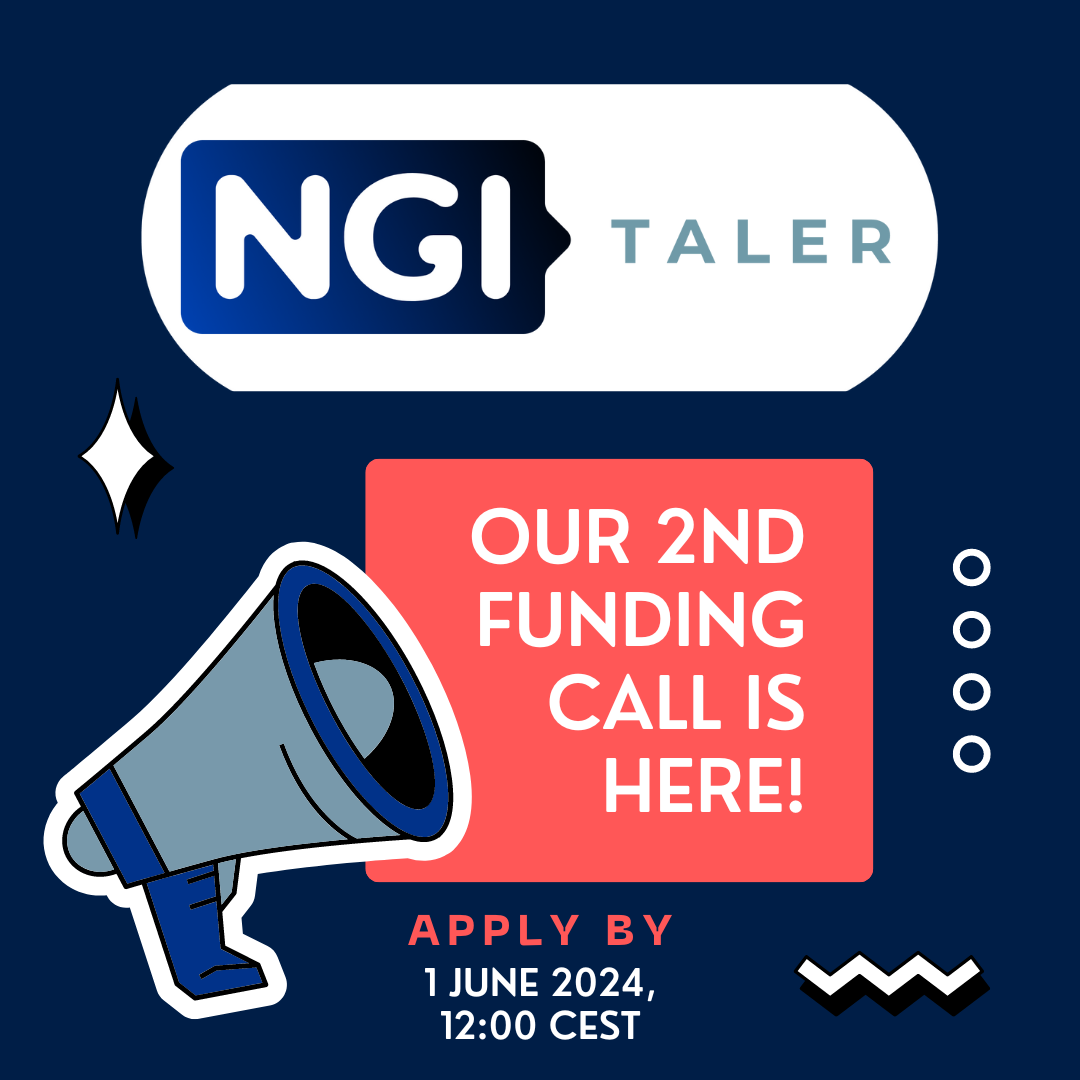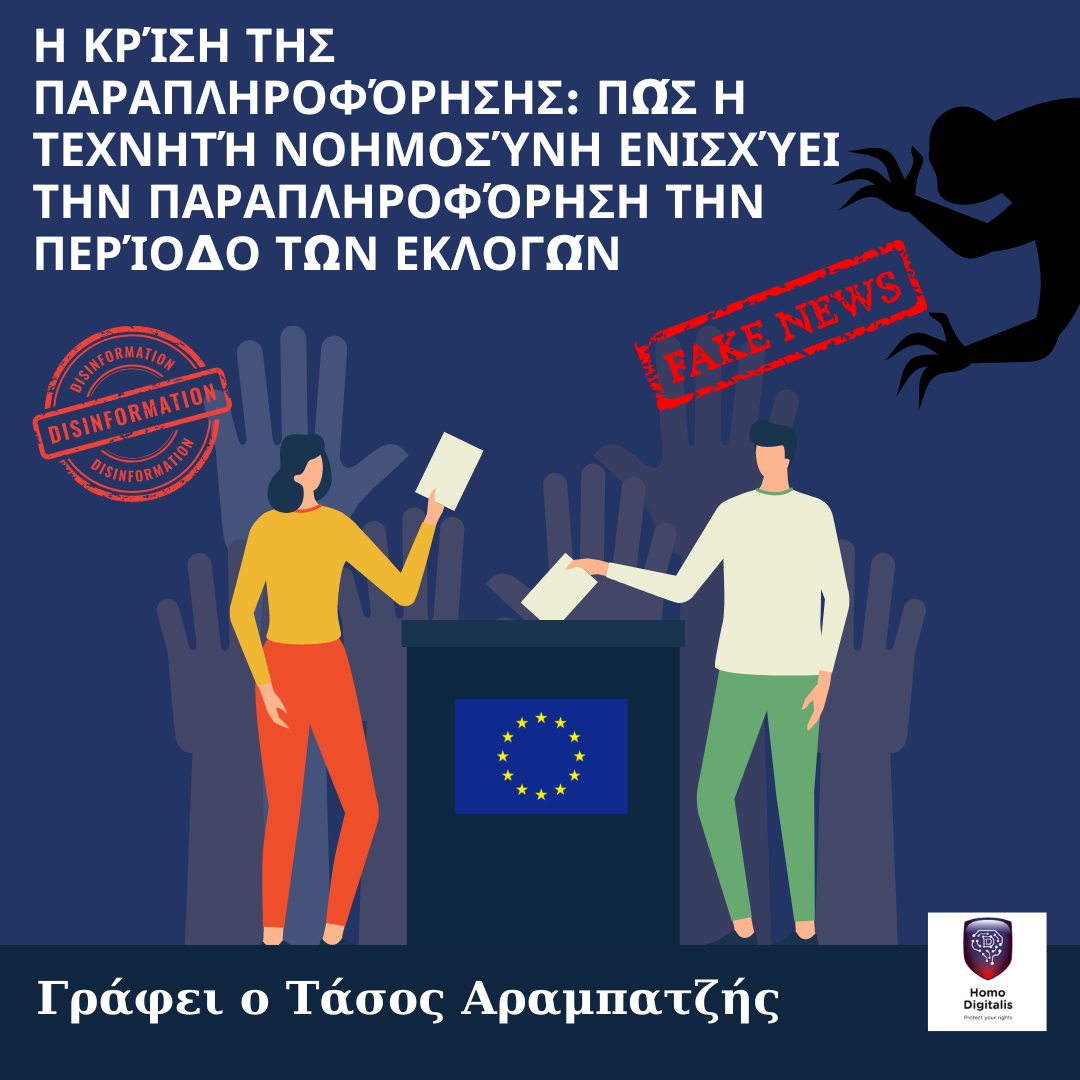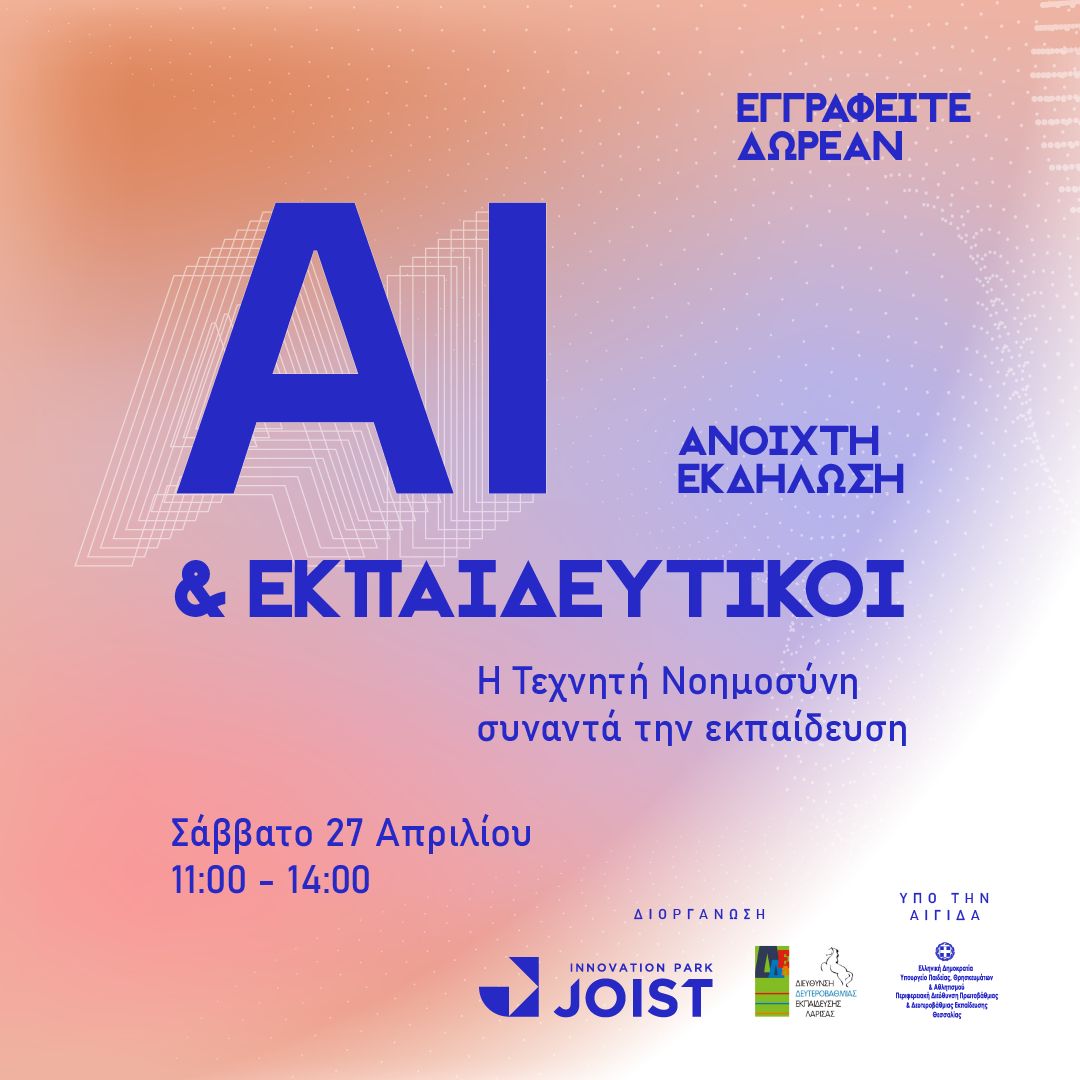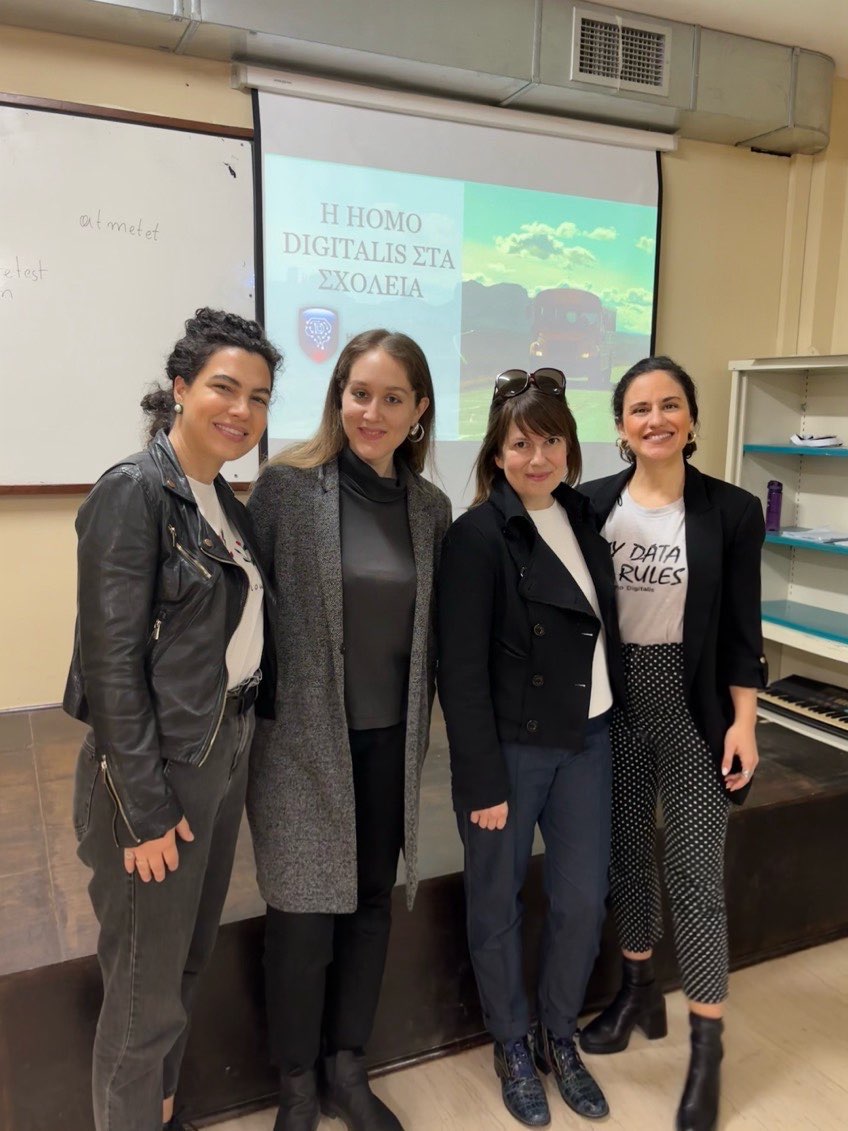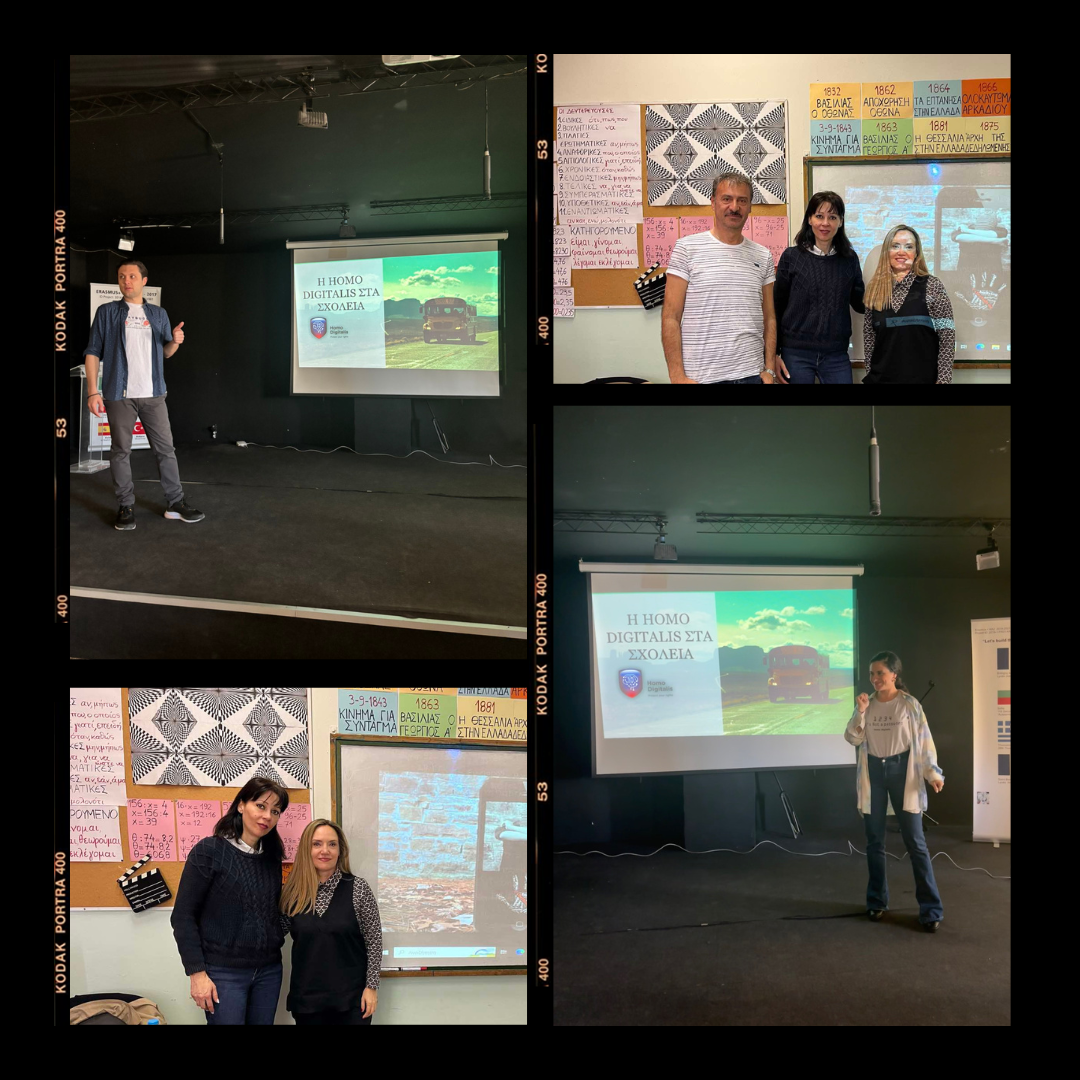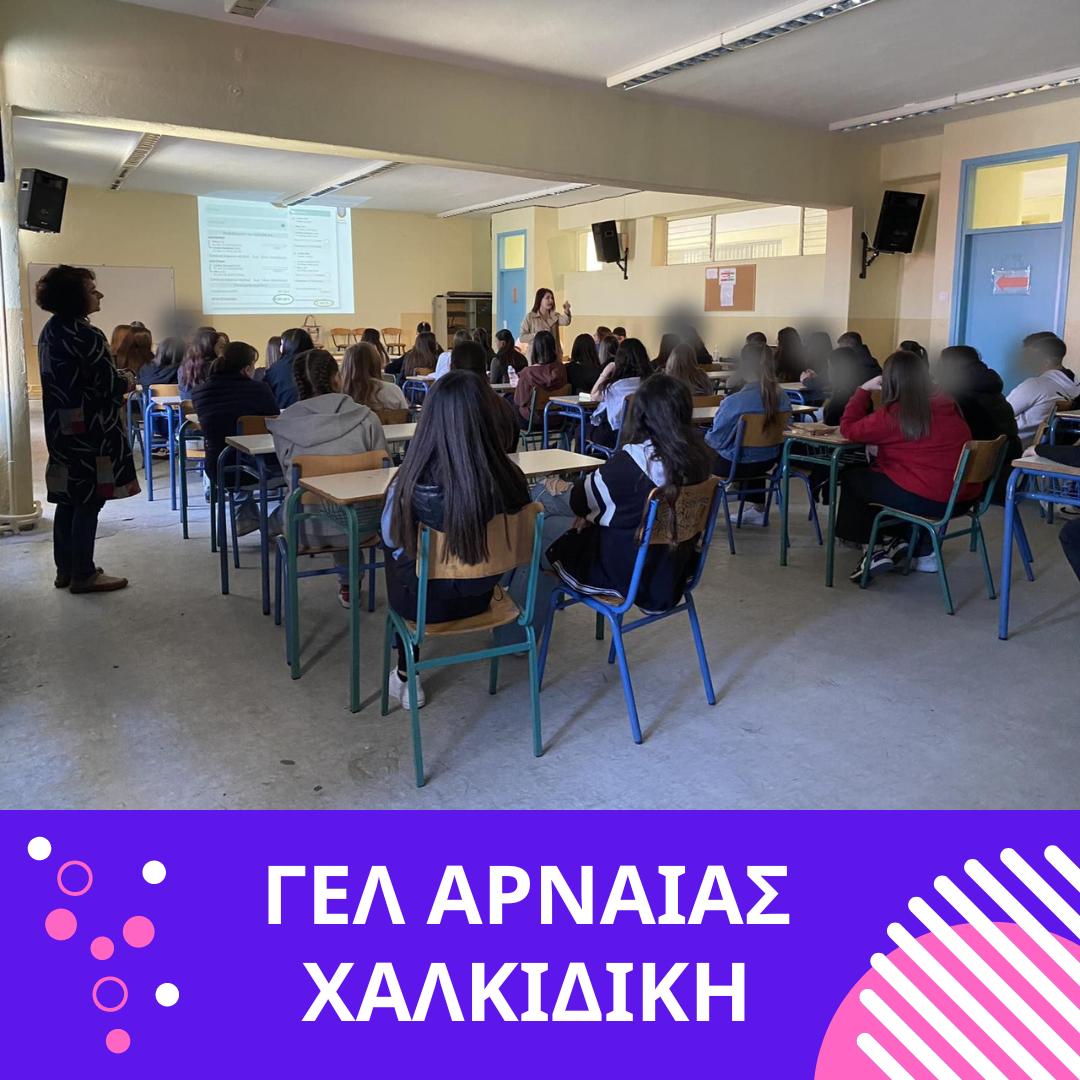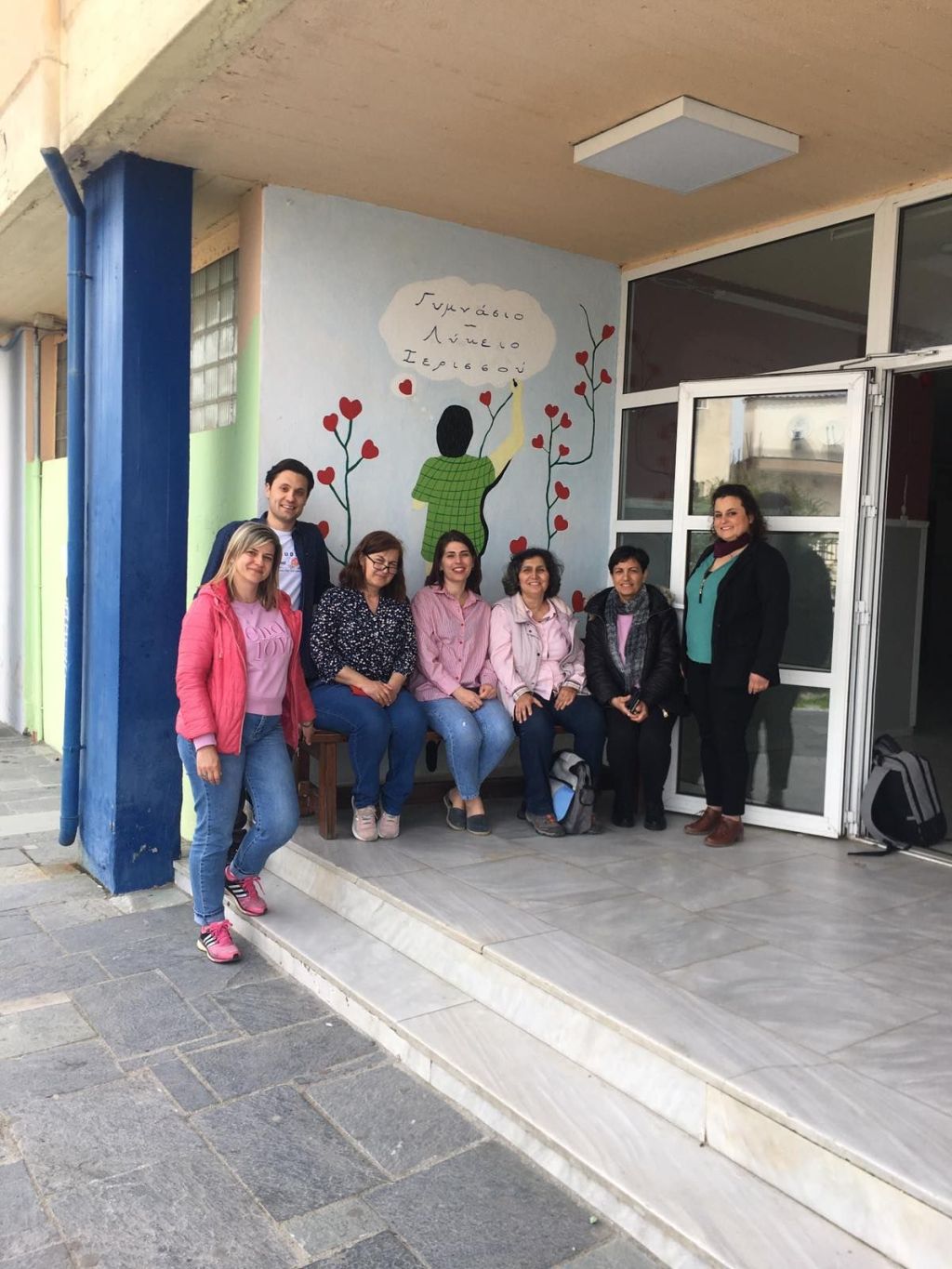We participated in a survey of experts on the use of new technologies in the field of education in the framework of the MILES project
In the age of hyper-connectivity, people are inundated by a constant flow of information and news that brings, on the one hand, better and stable information about world events and, on the other hand, many risks associated with fake news and misinformation.
Homo Digitalis had the pleasure to participate in a relevant research-discussion conducted by the MILES project (MIL and PRE-BUNKING approaches for Critical thinking in the education sector) and addressed to experts regarding the use of new technologies in the field of education.
The aim of the debate is to gather information on misinformation in order to develop effective strategies for the education sector. The discussion focused on issues such as digital literacy, the cultivation of critical thinking as a tool for identifying fake news, the role of education and the education system, and exploring possible policy interventions.
Homo Digitalis was represented in the research debate by the Director of Human Rights & Artificial Intelligence, Lambrini Yftokosta. We would like to thank the civil society organization KMOP Social Action and Innovation Centre for the inclusion and the honorary invitation.
Our participation in the event "Artificial Intelligence Meets Education" at the JOIST Innovation Park was a great success
Our Director on AI & Human Rights, Lamprini Gftokosta, spoke at the JOIST Innovation Park in the event “Artificial Intelligence Meets Education” under the auspices of the Regional Directorate of Education of Thessaly!
We would like to thank JOIST and its representative, Ms. Katerina Diminikou, as well as Mr. Nikos Zervas, Director of Secondary Education of Larissa for the invitation to participate in their event, and the more than 200 teachers who were there.
Homo Digitalis spoke about digital literacy, the provisions of the AI Act for education and our experiences in secondary schools in the country. Of course, the active presence was also given by Homo Digitalis member in Larissa, Anastasios Arampatzis, who spoke about The Glassroom Misinformation Exhibition and the detection of deepfakes!”
Translated with DeepL.com (free version)
Apply for the 2nd funding call of NGI TALER!
Make sure to apply to the second #funding call of NGI TALER until June 1st 2024 12:00 CEST (noon)!
Part of the budget of NGI TALER is reserved for open calls to fund free software and privacy preserving efforts that are aligned with the topics and approach of NGI TALER! We invite your contributions to help reshape the state of play of digital payment systems, and to help create an open, trustworthy and reliable internet for all!
We are seeking project proposals between 5.000 and 50.000 euro. The call is open to SMEs, academics, public sector, nonprofits, communities and individuals. You can contribute exciting new capabilities to GNU Taler itself, build auxiliary tools, work on user experience, develop integrations into FOSS applications and open standards (for example, enabling P2P micropayments in an instant messenger, open social media platform or video conferencing tool), or develop improvements to infrastructure components (like merchant backends)!
Visit the website of NGI – The Next Generation Internet for more information about this, and other NGI funding calls here.
Check NLnet foundation‘s website to read the detailed Open Call, the Guide for Applicants, the Eligibility Requirements and our FAQs and submit your form here.
Join now our TALER Intergration Community Hub (TALER ICH) to discuss together and ask your questions here.
The Looming Disinformation Crisis: How AI is Weaponizing Misinformation in the Age of Elections
By Anastasios Arampatzis
Misinformation is as old as politics itself. From forged pamphlets to biased newspapers, those seeking power have always manipulated information. Today, a technological revolution threatens to take disinformation to unprecedented levels. Generative AI tools, capable of producing deceptive text, images, and videos, give those who seek to mislead an unprecedented arsenal. In 2024, as a record number of nations hold elections, including the EU Parliamentary elections in June, the very foundations of our democracies tremble as deepfakes and tailored propaganda threaten to drown out truth.
Misinformation in the Digital Age
In the era of endless scrolling and instant updates, misinformation spreads like wildfire on social media. It’s not just about intentionally fabricated lies; it’s the half-truths, rumors, and misleading content that gain momentum, shaping our perceptions and sometimes leading to real-world consequences.
Think of misinformation as a distorted funhouse mirror. Misinformation is false or misleading information presented as fact, regardless of whether there’s an intent to deceive. It can be a catchy meme with a dubious source, a misquoted scientific finding, or a cleverly edited video that feeds a specific narrative. Unlike disinformation, which is a deliberate spread of falsehoods, misinformation can creep into our news feeds even when shared with good intentions.
How the Algorithms Push the Problem
Social media platforms are driven by algorithms designed to keep us engaged. They prioritize content that triggers strong emotions – outrage, fear, or click-bait-worthy sensationalism. Unfortunately, the truth is often less exciting than emotionally charged misinformation. These algorithms don’t discriminate based on accuracy; they fuel virality. With every thoughtless share or angry comment, we further amplify misleading content.
The Psychology of Persuasion
It’s easy to blame technology, but the truth is we humans are wired in ways that make us susceptible to misinformation. Here’s why:
- Confirmation Bias: We tend to favor information that confirms what we already believe, even if it’s flimsy. If something aligns with our worldview, we’re less likely to question its validity.
- Lack of Critical Thinking: In a fast-paced digital world, many of us lack the time or skills to fact-check every claim we encounter. Pausing to assess the credibility of a source or the logic of an argument is not always our default setting.
How Generative AI Changes the Game
Generative AI models learn from massive datasets, enabling them to produce content indistinguishable from human-created work. Here’s how this technology complicates the misinformation landscape:
- Deepfakes: AI-generated videos can convincingly place people in situations they never were or make them say things they never did. This makes it easier to manufacture compromising or inflammatory “evidence” to manipulate public opinion.
- Synthetic Text: AI tools can churn out large amounts of misleading text, like fake news articles or social media posts designed to sound authentic. This can overwhelm fact-checking efforts.
- Cheap and Easy Misinformation: The barrier to creating convincing misinformation keeps getting lower. Bad actors don’t need sophisticated technical skills; simple AI tools can amplify their efforts.
The Dangers of Misinformation
The impact of misinformation goes well beyond hurt feelings. It can:
- Pollute Public Discourse: Misinformation hinders informed debate. It leads to misunderstandings about important issues and makes finding consensus difficult.
- Erode Trust: When we can’t agree on basic facts, trust in institutions, science, and even the democratic process breaks down.
- Targeted Manipulation: AI tools can allow for highly personalized misinformation campaigns that prey on specific vulnerabilities or biases of individuals and groups.
- Influence Decisions: Misinformation can influence personal decisions, including voting for less qualified candidates or promoting radical agendas.
What Can Be Done?
There is no single, easy answer for combating the spread of misinformation. Disinformation thrives in a complicated web of human psychology, technological loopholes, and political agendas. However, recognizing these challenges is the first step toward building effective solutions. Here are some crucial areas to focus on:
- Boosting Tech Literacy: In a digital world, the ability to distinguish reliable sources from questionable ones is paramount. Educational campaigns, workshops, and accessible online resources should aim to teach the public how to spot red flags for fake news: sensational headlines, unverified sources, poorly constructed websites, or emotionally charged language.
- Investing in Fact-Checking: Supporting independent fact-checking organizations is key. These act as vital watchdogs, scrutinizing news, politicians’ claims, and viral content. Media outlets should consider prominently labeling content that has been verified or clearly marking potentially misleading information.
- Balancing Responsibility & Freedom: Social media companies and search engines bear significant responsibility for curbing the flow of misinformation. The EU’s Digital Services Act (DSA) underscores this responsibility, placing requirements on platforms to tackle harmful content. However, this is a delicate area, as heavy-handed censorship can undermine free speech. Strategies such as demoting unreliable sources, partnering with fact-checkers, and providing context about suspicious content can help, but finding the right balance is an ongoing struggle, even in the context of evolving regulations like the DSA.
- The Importance of Personal Accountability: Even with institutional changes, individuals play a vital role. It’s essential to be skeptical, ask questions about where information originates, and be mindful of the emotional reactions a piece of content stirs up. Before sharing anything, verify it with a reliable source. Pausing and thinking critically can break the cycle of disinformation.
The fight against misinformation is a marathon, not a sprint. As technology evolves, so too must our strategies. We must remain vigilant to protect free speech while safeguarding the truth.
We participate in the event "Artificial Intelligence Meets Education" at JOIST Innovation Park
JOIST Innovation Park and the Secondary Education Directorate of Larissa invite you to the open event for Teachers, School Counselors, Parents & Students “Artificial Intelligence Meets Education” under the auspices of the Regional Directorate of Education of Thessaly.
Date. Saturday 27 of April at 11:00
Place: Future Learning Lab with Free Entrance
It is our great honor and pleasure that the Director of Artificial Intelligence & Human Rights of Homo Digitalis, Lamprini Gyftokosta , will represent us there with a speech! We would like to thank the organizers for their kind invitation and inclusion!
How ready is the educational community to safely and effectively integrate AI and related digital tools in the learning process? The event aspires to ask key questions and present all those aspects related to the introduction of AI in the educational process.
The event is addressed to Teachers, School Staff, School Counsellors, Parents, Students from 12 to 18 years old.
Register for free here.
Voluntary educational actions in schools: Homo Digitalis visits the 3rd High School of Heraklion
Last week Homo Digitalis traveled far again! Following the very successful tour in Peloponnese, Central Greece, and Northern Greece, Crete was next.
Homo Digitalis spoke at the 3rd High School of Heraklion, talking to more than 90 students about Cyberbullying. The members who represented us were Adamantia Volikou, Angelina Barla and the President of Homo Digitalis Elpida Vamvaka.
We would like to thank the responsible Professor Mrs. Fotini Konstantaki (Computer Science Teacher) for the invitation and the excellent hospitality!
Voluntary educational actions in schools: Homo Digitalis visits the 63rd Primary School and the 28th High School of Thessaloniki
Last week Homo Digitalis literally hit the road again! Following the very successful 1500 km tour in Peloponnese and Central Greece, it was the turn of Northern Greece with 5 different schools!
After the visits to the 3rd Serres High School, the Ierissos High School and the Arnaia High School in Halkidiki, it was time for the capital of Macedonia, the beautiful Thessaloniki!
Homo Digitalis spoke at the 63rd Primary School of Thessaloniki about cyber bullying to teachers and children of the 5th and 6th grade! Many thanks to our members Melina Skondra & Athanasia Tychala for their representation, their unquenchable desire to pass on their knowledge to children and the school’s director Ms. Adamidou for the invitation!!!
But one school is not enough! So, our President Elpida Vamvaka and Charalampos Daftsios represented Homo Digitalis at the 28th General High School of Thessaloniki talking to teachers and students of the 1st grade about the digital footprint. Thanks to the school’s Director, Mrs. Halvatzi for the invitation!
Voluntary educational actions in schools: Homo Digitalis visits Arnaia High School in Halkidiki
Last week Homo Digitalis hit the road again!
After the very successful 1500 km tour in the Peloponnese and Central Greece, the 4 schools and the more than 600 students and teachers we met there, this time it was the turn of Northern Greece with 5 different schools and a new record of kilometers and students!
After Serres, it was the turn of Chalkidiki!
The second school (see the first one here) we visited there was the High School of Arnaia! Our Director for Artificial Intelligence and Human Rights, Lamprini Gyftokosta, spoke with the students of the first grade about the digital footprint and was lucky enough to be in front of an incredible audience, who asked pertinent questions, exercised their critical thinking and responded positively to our call for more control of our personal data!
We would like to thank the Director Mr. Tsiliverdi Dimitrios and the IT Teacher Ms. Eleni Letta for the invitation!
Homo Digitalis’ actions in the field of student awareness are carried out with the organization’s own resources and with the contribution of our network of volunteers! Your support is very important to achieve more in the new year!
Voluntary educational actions in schools: Homo Digitalis visits the High School of Ierissos
Last week Homo Digitalis literally hit the road again!
After the very successful 1500 km tour in the Peloponnese and Central Greece, the 4 schools and the more than 600 students and teachers we met there, this time it was the turn of Northern Greece with 5 different schools and a new record of kilometers and students!
After Serres, it was the turn of Chalkidiki!
Homo Digitalis talked about the digital footprint to all the students of the Ierissos High School and Ierissos Gymnasium. The active participation of the children and teachers in these interactive presentations fills us with joy and hope, but also with ideas for a wider public awareness on these issues.
We thank Charalambos Daftsios and Lambrini Yftokosta for representing us to over 350 children and especially to our excellent host and Director of the High School, Mrs. Mavroudi for inviting us to host the event.
Homo Digitalis’ actions in the field of student awareness are carried out with the organization’s own resources and with the contribution of our network of volunteers! Your support is very important to achieve more in the new year!


